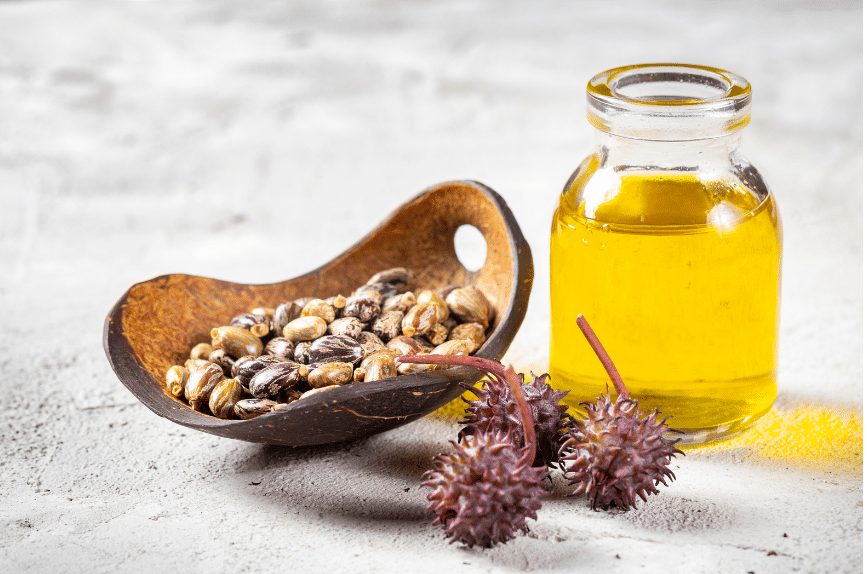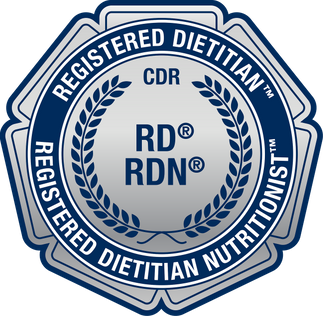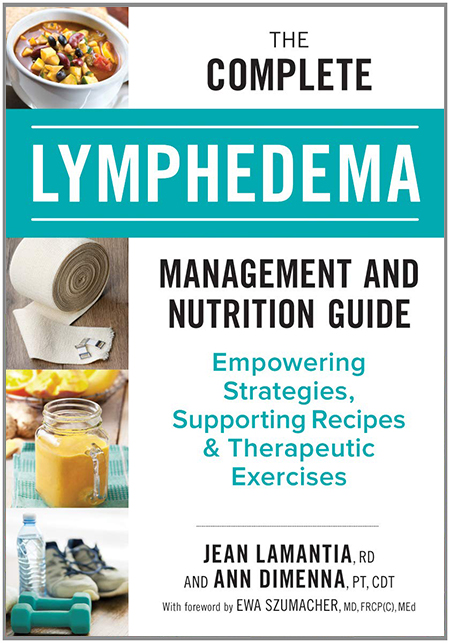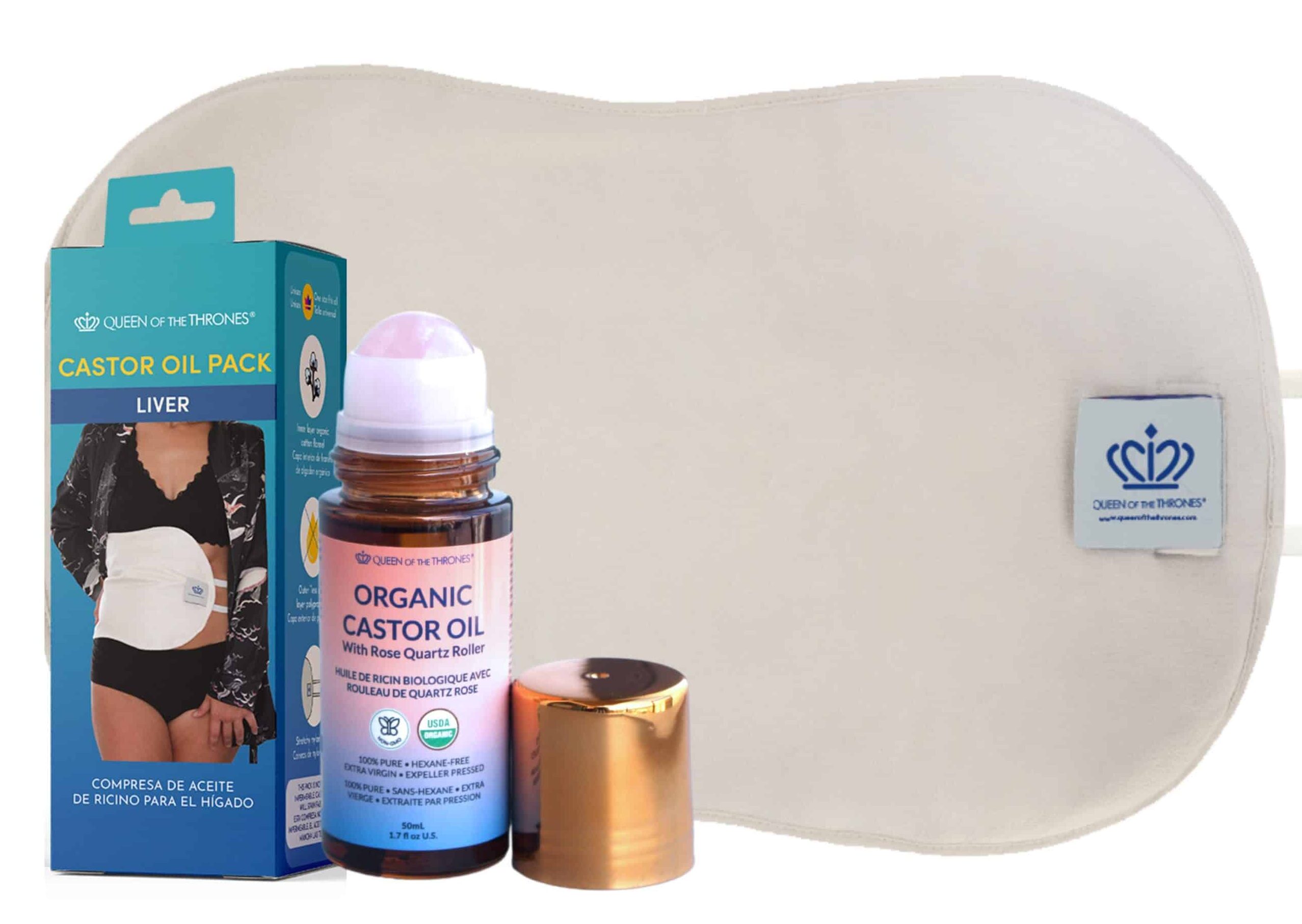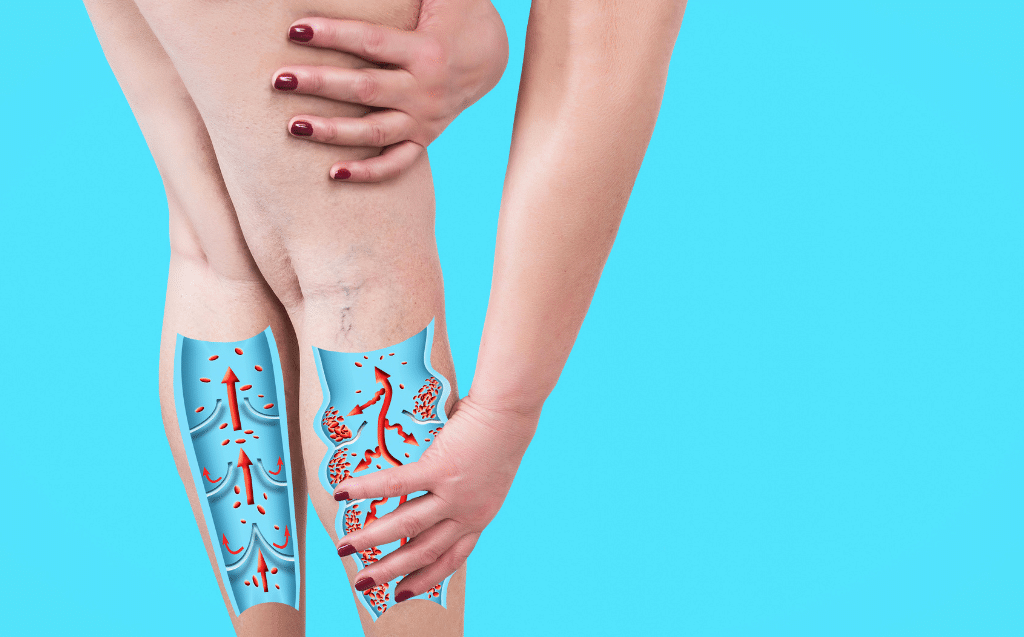I pride myself in being a nutrition geek and researching and referencing all my blogs and presentations. So, as per usual, I set out to test some claims about castor oil, specifically around castor oil for lymphatic drainage and for lymphedema to see if I could find any evidence. Like many natural therapies, the evidence was sparse, but I will outline what I found for you below.
But first, let’s begin with some background on castor oil. Keep in mind, this blog is not meant to diagnose or treat any conditions. Speak to your health care professional before beginning any new treatment, and make note that CAUTION needs to be used in pregnant women.
- What is Castor Oil?
- History of Castor Oil
- What Are the Traditional Uses of Castor Oil?
- What Are the Uses of Castor Oil Today?
- Can Castor Oil Help Lymphatic Drainage or Lymphedema?
- Castor Oil Research on Inflammation and Edema
- Can Castor Oil Heal Wounds?
- Can Castor Oil Help with Constipation?
- Side Effects of Castor Oil
- Contraindications for Castor Oil
- Is Castor Oil Safe?
- What Does Castor Oil Taste Like?
- Does Castor Oil Contain Ricin?
- Can I Dilute Castor Oil?
- Bottom Line on Castor Oil for Lymphatic Drainage
- References for Castor Oil for Lymphatic Drainage
What is Castor Oil?
Castor oil is the oil from the castor bean known by the Latin name Ricinus communis. The oil is pressed out of the bean and, like any vegetable oil, the oil can be extracted by cold pressing or by other methods that involve heat and solvents. The main constituent in castor oil is 80-90% ricinoleic acid, not to be confused with ricin, (more on this below). Some of the other constituents include fatty acids, specially: oleic acid, linoleic acid, and stearic acid, there is also some vitamin E.

History of Castor Oil
I managed to find a 1982 publication that was exhaustive in describing the historical and current day uses of the castor plant – including the trunk, stem, wax, leaves and oil (Scarpa, 1982). Some of the highlights include that castor oil was found in the sarcophagus of mummies in ancient Egypt that were dated to be 4000 years old. From Egypt, it was traced to have travelled to Greece, India and China. In ancient Greece it was used to treat constipation and it was introduced to London in 1764.

What Are the Traditional Uses of Castor Oil?
The same article cited above includes uses from over 20 countries and several indigenous tribes. The medicinal uses and the applications are extremely varied from treatments for pneumonia, asthma, strokes, infections, stomach aches, infections, jaundice, ascites and many other conditions. In some of these treatments, the castor bean components can have elaborate preparation methods, some can be mixed with other ingredients and in some remedies it is simply used on its own in a simple application (Scarpa, 1982). Despite being incredibly thorough, there was no mention in this publication of castor oil for lymphatic drainage.
What Are the Uses of Castor Oil Today?
In current day North America, it is mainly promoted for skin and hair care, for treating constipation as well as a “liver detoxifier” (I put this in quotations, as for many regulated health professionals, they consider this term to be an oxymoron, as the liver is its own detoxifier). It is sometimes taken by mouth, or can be applied to the skin, belly button, eyes or scalp.
The main claims on the medicinal uses of castor oil are for (Alookaran, 2022):
- Laxative
- Labour induction
- Lipid metabolism
- Antimicrobial
- Wound healing
- Arthritis
- Headache
- Menstrual cramps
Despite this broad list of proposed conditions that castor oil will treat, the FDA has only approved it for use as a stimulant laxative (Int J Toxicol. 2007). When used as a laxative, the oil is ingested orally in a dose of 15 to 60 ml per day (Alookaran, 2022).
While the use of castor oil is common in traditional and alternative medicine, evidence-based practitioners have tended to replace castor oil for other more modern products. But there is certainly a subset of people who are attracted to castor oil for exactly that reason – they prefer traditional and natural medicines over more modern replacements.

Can Castor Oil Help Lymphatic Drainage or Lymphedema?
It only takes a quick google search to find websites with claims such as “by using castor packs, the flow of lymph is increased throughout the body” and “castor oil for lymphatic system support definitely works”, and “by using castor oil packs the flow of lymph is increased throughout the body”. But…unfortunately, none of these websites have links to any research (my personal pet peeve).
There are historical accounts of castor oil written on papyrus paper, which state that the oil is used to treat rash (exanthema) with a ten day application (Franke, 2019). But, what about modern day documentation? From my searching I found three potential issues that castor oil could help address what would be important for lymphatic drainage, lymphedema or lipedema. Those three factors are: reducing inflammation and edema, wound healing and relief from constipation. I will review these three issues for you.

Castor Oil Research on Inflammation and Edema
I was able to find one rat study from over 20 years ago that tested castor oil on mice and guinea-pigs with induced inflammation and edema. In this animal study, inflammation was induced by injecting carrageenan into the inner layer of skin (the dermis) of a mouse paw, or by injecting histamine into the eyelid of a guinea-pig (Viera, 2000).
In both cases there was a resulting edema (swelling). Side note…in current day lymphedema research, injection of carrageenan usually into the mouse tail is used to replicate lymphedema, so I think this would be considered an accurate stand-in for lymphedema.
The mouse paw then had one of three topical applications every day for eight days, either:
- 99% ricinoleic acid diluted in peanut oil. (While castor oil is 80-90% ricinoleic acid, this is not quite the same as using pure castor oil.)
- Capsaicin diluted in peanut oil. (Capsaicin is the ingredient in chilies that provide the spicy heat.)
- Peanut oil only.
What Happened?
On the first day, both the ricinoleic acid and capsaicin treatment caused an increase in the paw edema. The peanut oil by itself, did not cause an increase in edema.
The application of all three treatments on the selected animals continued every day for eight days and they resulted in a “marked reduction in edema.” Edema was measured as “hind paw thickness”.
Same result for the guinea-pig, namely an increase in edema with the first application and a reduction compared to control with the eight day application. They also note that “the topical administration of capsaicin resulted in a local hyperemic response and activation of behavioural defensive responses including scratching of the eyelid” (well no sh*t….as a former contact lens wearer, I can tell you that cutting a jalapeño pepper then putting your contact lenses in is NOT a good idea). But, they noted that there was no such response with the ricinoleic acid, which is good to know.
Overall, the researchers concluded that:
- The anti-inflammatory effects of ricinoleic acid was more effective in the carrageenan induced inflammation than the histamine induced inflammation as different mechanisms of action are responsible
- Ricinoleic acid did not produce the pungent and painful effects of capsaicin but did provide the anti-inflammatory result
Would I conclude from this study that use should use castor oil for lymphatic drainage? No.
Why? This is only primary research and you typically don’t make recommendations for humans based on animal studies. In addition, Castor oil and 99% ricinoleic acid in peanut oil are not the same thing.
But…after reading this study, I can see where the recommendation to use castor oil as an anti-inflammatory and anti-edema product could have originated…as well as of course from traditional uses being passed down from ancient times. But, I’m not saying I would be against someone trying castor oil for lymphedema, I’m just saying that this one animal study is not compelling “proof” that castor oil can should be used for lymphatic drainage.
Can Castor Oil Heal Wounds?
Another role for castor oil that may be relevant for lymphedema would be for wound healing. Unfortunately, wounds can develop in lymphedema due to a variety of issues, including ill fitting garments, lymphorrhea and skin maceration or poor blood circulation due to phlebolymphedema.
Another name for the castor plant is “wonder tree” because of the plant’s rapid growth. Wonder tree references is mentioned in the bible (Johan, chapter 4)
“So Jonah went out to the city [Nineveh]…And the Lord God appointed a castor oil plant”.
A third name for the plant is “Palma Cristi” which means “palm of Christ” and this is based on its wound healing properties (Franke, 2019). But, this dates back to the Papyrus Ebers where are 3500 year old papyrus scrolls from ancient Egyptian healing arts (Frank, 2019). I wasn’t able to find any English language research on wound healing in the modern literature.

Can Castor Oil Help with Constipation?
A third use of castor oil that makes it of interest for lymphedema and lipedema is the anti-constipating effect. This effect is known as a “purgative”. While at first blush, your bowel routine and your lymphedema and lipedema may seem to be two independent systems, think again. The intestinal are rich in lymphatic capillaries called lacteals and the mesentery – which is the lining that holds the intestines to the abdominal wall has a large collection of lymph nodes. In fact, your gut lymphatics are incredibly important. Castor oil has been used in a variety of ways to help relieve constipation:
- Taken orally
- Applied to the skin of the abdomen directly
- Applied to a flannel cloth – and then securing the flannel against your skin for a few hours or overnight, known as a castor oil pack
- Pouring into the belly button
As mentioned above, castor oil is approved by the FDA for treating constipation as a stimulant laxative (Int J Toxicol. 2007). Is there any down-side to using castor oil? There are a few, which is why you should begin slowly and watch for any unwanted side-effects.
Side Effects of Castor Oil
Side effects of castor oil that have been documented include (Alookaran, 2022):
- Abdominal cramping
- Vomiting
- Bloating
- Dizziness
- Premature contractions in pregnancy (CAUTION if you are pregnant)
- Potential for reduced absorption of other drugs when used as a laxative
- Long term use as a laxative could lead to electrolyte imbalance and acid-base disorders
Contraindications for Castor Oil
It is not recommended to use castor oil if you have any of the following issues (Alookaran, 2022):
- Gastrointestinal obstruction
- Appendicitis
- Perforation
- Inflammatory bowel disease

Is Castor Oil Safe?
According to authors of a stat pearls article on castor oil “It is the responsibility of the health care team to be professional, ethical, and respectful of the patient’s decisions in terms of their care. Due to the natural quality of castor oil, it may be the preferred treatment of choice for many patients. With increased scientific research regarding castor oil and the fact that castor oil has been in use for hundreds of years, physicians can comfortably prescribe this medication.” (Alookaran, 2022).
What Does Castor Oil Taste Like?
The taste is described as initially bland, followed by bitter and nauseating. That doesn’t sound very appealing…but I did read that to make it taste better, it can be flavored with peppermint, cinnamon or other flavours.
Does Castor Oil Contain Ricin?
No, castor oil does not contain ricin. And…it would be bad if it did, since ricin is poisonous and can kill you. Not only is ricin one of the most potent and lethal substances known. It has been considered as an important bioweapon and an attractive agent for bioterroristic activities (Franke, 2019).
Did you watch Breaking Bad? Breaking Bad is the hit TV show with 5 seasons. In a one of the episodes the main protagonist, a chemist by the name of Walter White suggests that he can make a lethal poison called ricin from the Lilly of the Valley plant. Well that same ricin is also present in the castor bean hull.
Thankfully, when the castor oil is extracted from the castor bean, care is taken not to include the hull of the bean in the extraction process. In addition, the oil is sampled and tested to be sure it meets safety standards. For this reason, you can not eat the whole seed. But studies have been done on short term use of controlled doses of the hulled seed and the oil.

Can I Dilute Castor Oil?
Yes, you can dilute castor oil. Castor oil has been described as thick, sometimes as sticky, so if you need a less viscous oil, you can another good quality oil to it such as extra virgin olive oil, to make it less sticky.
What Do People Say About Using Castor Oil for Lymphatic Drainage?
I did post this on my social media…
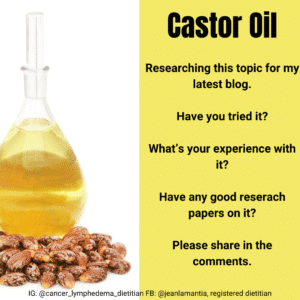
These were the comments that I received:
@westclifflymphatics “I have had a few secondary lymphedema patients have reduce swelling. Definitely helps with sports related edema. Works best if used in cloth and left of ro 24 hours. It’s a fascinating remedy!”
@lymphedema_conqueror “I use castor oil on my leg when I do MLD (manual lymphatic drainage). I like how it feels and it is great for my skin.”
@sammyiam2447 “I have been using castor oil packs on abdomen to try and break down scar tissue and I have seen some improvement. I notice whenI take a break from it.”
While this not a scientific method, it’s great to hear from others about their experiences. Please follow me on my social media for more content like this on facebook and Instagram.
Bottom Line on Castor Oil for Lymphatic Drainage
In the end, I do try to be open-minded about these kind of claims. I’m still such a research nerd, it’s a constant frustration for me that natural health products don’t have more good quality clinical trials. When it comes to recommending in situations like this…these are my considerations. What are the potential pros? In this case, improved lymphatic flow and improved lymphedema, relief from constipation, and improved wound healing.
What are the potential cons? In this case…abdominal upset, vomiting bloating and dizziness, which you can monitor for. I’ll say it just one more time… serious and potentially deadly side-effects exist for an unborn babies, so extreme caution is needed with pregnant women.
So…I’m intrigued, but I’m also skeptical. The good news is, applying castor oil to your skin as part of a daily skin care routine or applying the oil to a flannel cloth and wrapping it which is referred to as a “castor oil pack” seems to be safe. People apply all types of vegetable oils to their skin, including olive oil and coconut oil, so castor oil on the skin is not that crazy of an idea.
Of course, like anything you apply to your skin, you do need to be on the lookout for sensitivity reactions. You may want to do a skin test first, especially if you tend to have sensitive skin.
Whenever you try something new for your lymphedema, I recommend you track your baseline measurements and symptoms first, that way, it helps you to evaluate any new treatment, or change in diet or other self-care strategies. To do this, I highly recommend you track with either the daily or weekly lymphedema journal.

If you liked this blog, then you’ll enjoy reading:
Review Castor Oil for Uterine Fibroids
References for Castor Oil for Lymphatic Drainage
Alookaran J, Tripp J. Castor Oil. [Updated 2022 Nov 21]. In: StatPearls [Internet]. Treasure Island (FL): StatPearls Publishing; 2024 Jan-.
Arslan GG, Eşer I. An examination of the effect of castor oil packs on constipation in the elderly. Complement Ther Clin Pract. 2011 Feb;17(1):58-62. doi: 10.1016/j.ctcp.2010.04.004. Epub 2010 May 18. PMID: 21168117.
Franke H, Scholl R, Aigner A. Ricin and Ricinus communis in pharmacology and toxicology-from ancient use and “Papyrus Ebers” to modern perspectives and “poisonous plant of the year 2018. Naunyn Schmiedebergs Arch Pharmacol. 2019 Oct;392(10):1181-1208. doi: 10.1007/s00210-019-01691-6. Epub 2019 Jul 29. PMID: 31359089.
Scarpa A, Guerci A. Various uses of the castor oil plant (Ricinus communis L.). A review. J Ethnopharmacol. 1982 Mar;5(2):117-37. doi: 10.1016/0378-8741(82)90038-1. PMID: 7035750.
Vieira C, Evangelista S, Cirillo R, Lippi A, Maggi CA, Manzini S. Effect of ricinoleic acid in acute and subchronic experimental models of inflammation. Mediators Inflamm. 2000;9(5):223-8. doi: 10.1080/09629350020025737. PMID: 11200362; PMCID: PMC1781768.
Final report on the safety assessment of Ricinus Communis (Castor) Seed Oil, Hydrogenated Castor Oil, Glyceryl Ricinoleate, Glyceryl Ricinoleate SE, Ricinoleic Acid, Potassium Ricinoleate, Sodium Ricinoleate, Zinc Ricinoleate, Cetyl Ricinoleate, Ethyl Ricinoleate, Glycol Ricinoleate, Isopropyl Ricinoleate, Methyl Ricinoleate, and Octyldodecyl Ricinoleate. Int J Toxicol. 2007;26 Suppl 3:31-77. doi: 10.1080/10915810701663150. PMID: 18080873.
